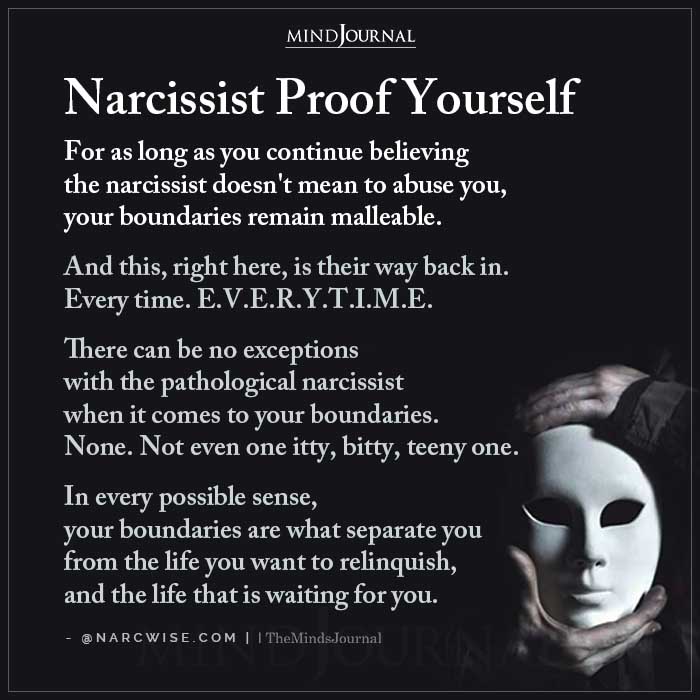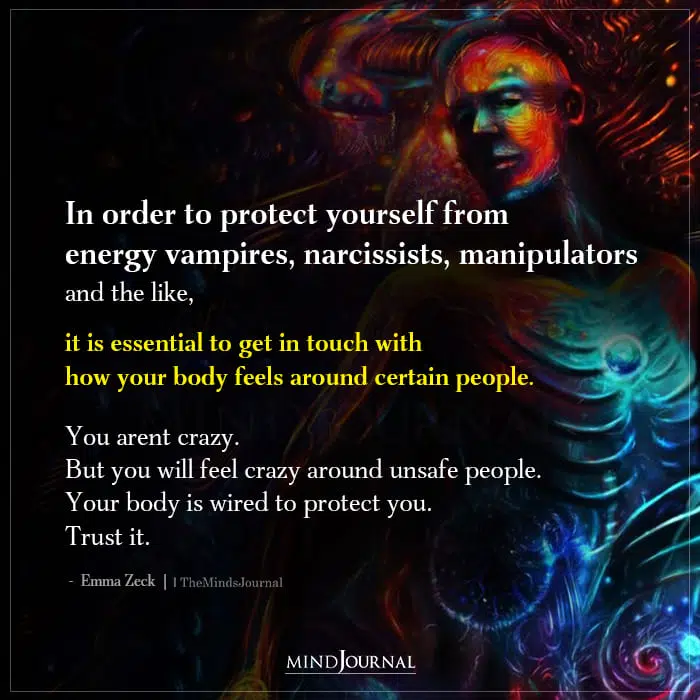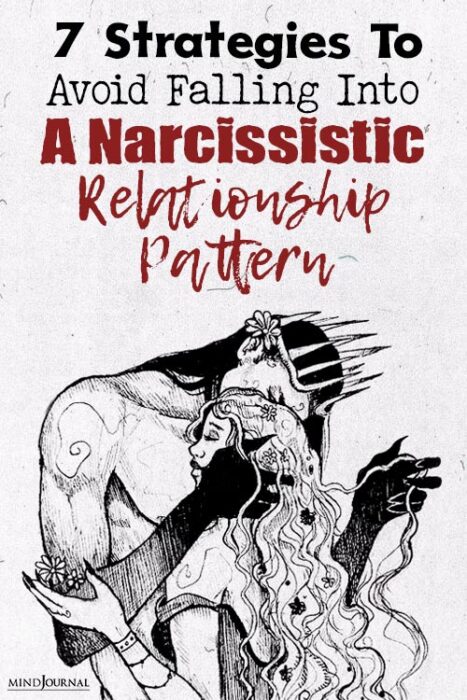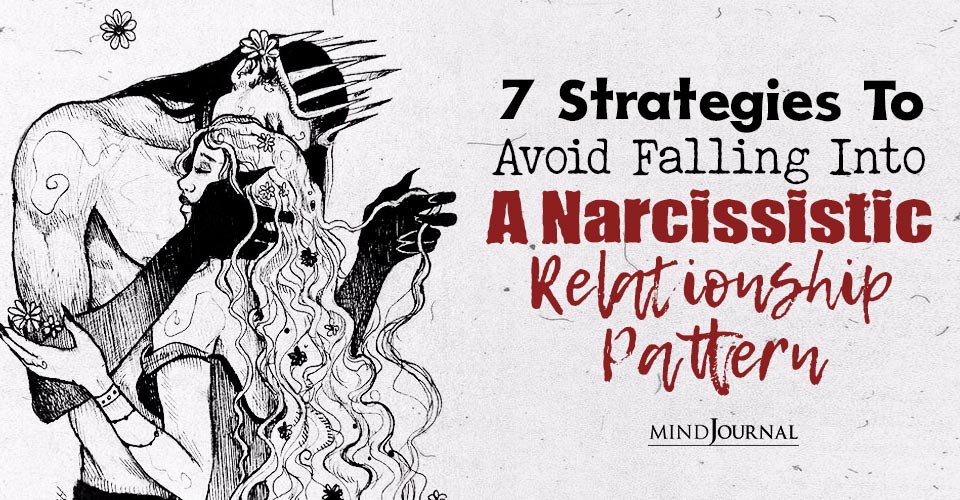Have you ever been in a relationship with a narcissist? If your answer is yes, then you know how toxic, unhealthy, and emotionally draining it really is. And if you find yourself falling into a narcissistic relationship pattern every time you open up your heart to someone, then this article might be able to help you.
Falling into a narcissistic relationship pattern can be a devastating experience, leaving you feeling depleted, anxious, and helpless. Narcissistic relationships are characterized by an imbalance of power, with one partner seeking constant validation and attention, while the other is left feeling unheard and unimportant.
Dating someone with narcissistic personality disorder is probably one of the most traumatic things you can experience.
Before we talk about how you can avoid a narcissistic relationship pattern, let’s find out what a narcissistic relationship looks like. Here are the major relationship patterns of a narcissist.
Related: What’s It Like To Be In A Toxic Relationship With A Narcissist?
Signs Of Narcissistic Relationships
These signs will help you spot narcissistic relationship patterns, and you might be able to protect yourself from their toxic mind games and abusive behavior.
- Love bombing: The narcissistic partner may shower the other person with affection, gifts, and attention in the early stages of the relationship, often to win them over and make them feel special.
- Lack of empathy: Narcissists often lack empathy for others and may not take the feelings or needs of their partner into consideration.
- Gaslighting: Gaslighting is a manipulative tactic used by narcissists to make their partner doubt their own reality and perceptions.
- Grandiosity: The narcissistic partner may have a grandiose sense of self-importance and expect others to cater to their needs and desires.
- Controlling behavior: The narcissistic partner may try to control the other person’s actions, thoughts, and emotions, often using guilt, manipulation, or intimidation.
- Allergic to criticism: Narcissists love to criticize and put others down, but when the tables turn, they have a hard time digesting criticism, even if it’s constructive. In their eyes, they can never be wrong, and they always have a million excuses ready when it comes to deflecting blame and shaming other people for their mistakes.
- Emotional abuse: Narcissistic relationships often involve emotional abuse, such as name-calling, belittling, or constant criticism.
- Lack of accountability: Narcissists may not be willing to admit their mistakes or apologize, which can create a toxic dynamic in the relationship.
- Need for approval: A narcissist always looks for admiration, and approval and tries their best to be the center of attention, all the time. And the more attention and importance you give them, the more desperate and entitled they become. This leads to you feeling emotionally exhausted from all the mollycoddling you have to do.
- Isolation: Narcissists may try to isolate their partner from friends and family, leaving them feeling trapped and dependent on the narcissist for support and validation.

What Are The Effects Of A Narcissistic Relationship?
Be it a female narcissistic relationship pattern or a male narcissistic relationship pattern, a narcissistic relationship impacts mental health and can have serious and lasting effects on an individual’s emotional health too. So how narcissistic relationship pattern affect mental health? Let’s find out.
- Low self-esteem: Narcissists often belittle and criticize their partners, which can lead to you having feelings of worthlessness, low self-worth, and low self-esteem.
- Trust issues: Being in a narcissistic relationship can erode your ability to trust others, making it difficult for you to form healthy, happy, and trusting relationships in the future.
- Anxiety and depression: Constant criticism and emotional abuse can lead to you developing anxiety and depression, which can have a significant impact on your quality of life.
- Guilt and shame: Narcissistic people often use guilt and shame to control their partners, which can lead to you feeling unworthy, stupid, and even narcissistic, which can be difficult for you to overcome.
- Health problems: Chronic stress and anxiety can have physical effects on your body, leading to serious health problems such as high blood pressure, digestive issues, and chronic pain.
- Codependency: Narcissistic relationships often involve a power imbalance, with one partner being overly dependent on the other for validation and support. In such a situation, you end up being the codependent partner.
- Self-doubt: Gaslighting and other manipulative tactics can make it difficult for you to trust your own perceptions, gut instincts, and beliefs, leading to self-doubt and confusion. Your self-confidence goes for a toss and you are left reeling from all the self-flagellation and self-doubt.
- Isolation: Narcissists may try to isolate you from your friends and family, which can lead to feelings of loneliness and a lack of emotional and mental support. When in times of need, there’s no one you can rely on, including the narcissist.
- Trauma: Emotional abuse can lead to long-term psychological trauma, which can manifest as post-traumatic stress disorder (PTSD) or other mental health conditions.
- Financial problems: A narcissistic partner may drain your finances and even steal from you, ultimately leaving you in a precarious and difficult financial situation.
Related: The Pull And Push In A Relationship With A Narcissist
How To Avoid A Narcissistic Relationship Pattern: 8 Strategies
Here are eight ways to protect yourself from narcissistic abuse and build healthier, more fulfilling relationships.
1. Try to understand the signs of narcissistic behavior.
The first step to avoiding narcissistic relationships is to learn how to recognize the signs of narcissistic behavior. Narcissists often display a range of manipulative tactics, such as gaslighting, love bombing, and devaluation. They may also be extremely controlling, have a grandiose sense of self-importance, and lack empathy for others.
By educating yourself on the traits of narcissistic behavior, you can better identify when someone may be exhibiting these patterns and avoid getting involved in a relationship with them.
2. Set and enforce strict personal boundaries.
One of the best and most important things you can do to avoid falling into a narcissistic relationship pattern is this.
Healthy boundaries are crucial in any relationship, especially when dealing with a narcissist. Narcissists are known for pushing boundaries and violating others’ personal space and privacy, which can be emotionally exhausting.
Setting and enforcing boundaries can help you protect yourself from these manipulative tactics. Be clear about what you’re comfortable with and what you’re not, and don’t be afraid to speak up when your boundaries are crossed.
Remember that boundaries are not negotiable, and it’s essential to stick to them to maintain your emotional and mental well-being.

3. Trust your instincts and trust yourself.
Trusting your instincts is crucial when dealing with someone who suffers from a narcissistic personality disorder.
Often, people who fall into narcissistic relationships ignore warning signs because they want to believe the other person has good intentions. However, if something doesn’t feel right, it’s essential to trust your gut and take action to protect yourself.
Your instincts are a powerful tool for protecting yourself from harm, so don’t ignore them. If you feel uneasy or unsure about someone, take a step back and reassess the situation before moving forward.
Related: 6 Stages Of Recovering From A Toxic Relationship
4. Stop prioritizing your partner’s needs all the time while ignoring yours.
Even though it might feel better to take on the role of a caretaker when you are in a narcissistic relationship, truth be told, this is one of the worst things you can do to yourself.
The more you try to protect them and prioritize them over yourself, the more they will sink their fangs into you and deplete you of your energy and happiness.
You are not responsible for fixing or parenting your narcissistic partner, nor is their healing your duty to fulfill. Always putting them first will only hurt you more and gradually make you feel like a shell of the person you are. So, put yourself first, choose yourself, make yourself happy, and let them deal with their problems.
5. Learn the art of saying ‘No’.
Learning to say no is an important skill to have when dealing with narcissistic relationships. Narcissists often try to control others by using guilt, shame, or other manipulative tactics, but saying no can help you establish healthy boundaries and assert your own needs and priorities.
Remember that saying no is not a negative thing – it’s an essential tool for maintaining your own well-being. Be clear and direct when saying no, and don’t feel guilty or ashamed for prioritizing yourself.
6. Build your self-esteem and don’t compromise your integrity.
One of the reasons people may fall into narcissistic relationship patterns is because they lack self-esteem and confidence. Narcissists are often drawn to people who they perceive as vulnerable, as they are easier to manipulate and control.
Building your self-esteem can help protect you from falling into this trap. Start by identifying your strengths and passions, setting achievable goals, and practicing self-care. Surround yourself with supportive friends and family who encourage and uplift you, and seek therapy if needed to work on your self-esteem.
Related: 9 Best Books On Narcissism You Cannot Afford To Miss
7. Pay attention to your own feelings and thoughts.
When you are in a relationship with a narcissist, you are always told and made to feel that your feelings don’t matter, what you think doesn’t matter, and what you want doesn’t matter. Even though this might be a hard thing to do, you need to pay attention to how you really feel and what is it that you want.
The moment you start focusing on your own feelings without caring what your narcissistic partner thinks, that’s when you reclaim your power back and take back control from them. As long as you respect yourself and listen to yourself, a narcissist will never be able to affect you.

Takeaway
Breaking the cycle of narcissistic relationship patterns is not easy, but that doesn’t mean you will keep on hurting yourself and ruining your happiness. It might take a significant amount of effort and patience, but if you follow the above tips, you might just be able to break the cycle once and for all.
Related: 10 Powerful Tactics To Put A Narcissist In Their Place
Also, it’s important to remember that dealing with a narcissistic partner can be challenging and may require outside help and support. Don’t hesitate to reach out for help if you need it.
Want to know more about how you can avoid a narcissistic relationship pattern? Check this video out below!
Frequently Asked Questions (FAQs)
Do narcissists follow the same relationship patterns with everyone?
Yes, narcissists follow the same pattern with everyone when it comes to romantic relationships. They bait and trap their victims with the same pattern of idealizing, devaluing, and discarding.
How do you break a narcissistic pattern?
Some of the best and most effective ways of breaking a narcissistic pattern are staying calm when they are trying their best to rile you up, ignoring and calling them out on their manipulative games, setting boundaries to protect yourself, living a happy life without them, and if needed, cutting off all contact with them.
What makes a narcissist fall apart?
When narcissists don’t get a steady stream of narcissistic supply or validation or when someone attacks their ego and injures their self-esteem, that’s when narcissists start to crumble.
Why do I meet so many narcissists?
Some of the major reasons why you meet and fall for narcissists are because you are an empathetic and sensitive person, you might have low self-esteem, you have narcissistic parents, you have poor boundaries, and because they make you feel really good sometimes.










Leave a Reply
You must be logged in to post a comment.